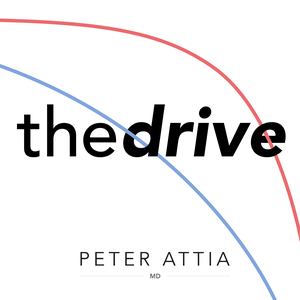#340 - AMA #69: Scrutinizing supplements: creatine, fish oil, vitamin D, and more—a framework for understanding effectiveness, quality, and individual need
View the Show Notes Page for This Episode Become a Member to Receive Exclusive Content Sign Up to Receive Peter’s Weekly Newsletter In this "Ask Me Anything" (AMA) episode, Peter explores the complex world of supplements by introducing a practical framework for evaluating their effectiveness and relevance to individual health needs. Rather than providing a simple list of recommendations, Peter aims to equip listeners with the tools to critically assess supplements on their own. He then applies this framework to discuss research on several popular supplements, including creatine, fish oil, vitamin D, B vitamins, and ashwagandha. Additionally, he covers key factors in assessing supplement quality, helping listeners develop a deeper understanding of how to make informed decisions based on their personal health goals. If you’re not a subscriber and are listening on a podcast player, you’ll only be able to hear a preview of the AMA. If you’re a subscriber, you can now listen to this full episode on your private RSS feed or our website at the AMA #69 show notes page. If you are not a subscriber, you can learn more about the subscriber benefits here. We discuss: Overview of episode topics [1:45]; How Peter evaluates patients’ supplement regimens, and common misconceptions about supplements vs. pharmaceuticals [3:00]; A framework for evaluating supplements [6:15]; Evaluating creatine: purpose of supplementation, dosing, and mechanism of action [10:00]; Creatine: proven benefits for muscle performance, potential cognitive benefits, and why women may benefit more [15:15]; Creatine: risk vs. reward, kidney concerns, and choosing the right supplement [18:45]; Evaluating fish oil: its primary purpose as a supplement and how to track levels [20:45]; Fish oil: how omega-3s impact inflammation, heart health, and brain function, and the strengths and limitations of current research [26:30]; Fish oil: the risks of supplementation, guidance on selecting high-quality products, and how to determine whether supplementation is appropriate [37:30]; Evaluating vitamin D: understanding deficiency and optimal levels [45:15]; Vitamin D: role in bone health, immune function, potential longevity impact, and biomarker limitations [51:15]; Vitamin D: efficacy, safety, and balancing risk vs. reward [58:15]; Evaluating B vitamins: function, consequences of deficiency, and key biomarkers to assess whether supplementation is necessary [1:02:15]; B vitamins: risks for CVD and dementia associated with deficiency, and limited evidence for general population supplementation [1:07:15]; Evaluating ashwagandha: background, uses, and mechanism of action [1:15:30]; Ashwagandha: current evidence for its effects on sleep, stress, and anxiety [1:19:15]; Ashwagandha: evaluating supplement quality, safety profile, and the risk-reward balance [1:22:15]; The importance of using a structured evaluation framework to assess any supplement [1:26:30]; and More. Connect With Peter on Twitter, Instagram, Facebook and YouTube
